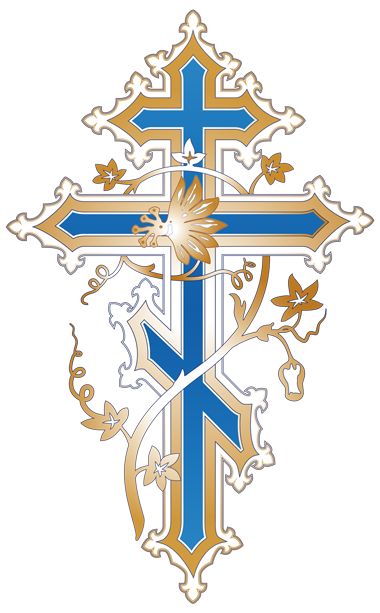In the name of the Father and the Son and the Holy Spirit.
Just like Peter and the other apostles, we find it hard to believe that God, the God of peace, the God of harmony, can be in the very heart of a storm that seems ready to destroy our security and rob us of life itself.
In today’s Gospel, it is said how the disciples left the shore, where Christ remained alone, in the solitude of perfect prayerful communication with God. They set sail, hoping for safety; and half-way a storm overtook them, and they knew that they were in danger of perishing. They fought with all their human abilities, experience and strength, but mortal danger hung over them; fear and despair seized them.
And suddenly they saw the Lord Jesus Christ in the midst of the storm; He walked in turbulent waves, amid an angry wind and, along with it, in a kind of frightening silence. And the disciples cried out in alarm because they could not believe that it was Him, they thought that it was a ghost. And Jesus Christ, from the heart of this raging storm, said to them: “Do not be afraid”! It is I… Just as He tells us in the Gospel of Luke: When you hear of wars and rumors of wars, do not be afraid, lift up your heads, for your salvation is drawing near…
We find it hard to believe that God can be at the center of tragedy, and yet it is so. He is at the heart of tragedy in the most terrible sense; the ultimate tragedy of humanity and each of us is our distance from God, the fact that God is far away from us; however near He may be to us, we do not feel Him with that clearness which would give us a sense of sure security and give rise to triumph.
The whole Kingdom of God is within us – and we do not feel it. And this is the ultimate tragedy of each of us and the whole world, from generation to generation. And so Christ, the Son of God, entered into this tragedy, becoming the son of man, entering into the heart of this separation, this horror, which gives rise to mental torment, separation, and death.
And we are like these students; we do not need to imagine what is happening to them: we are in the same sea, in the same storm, and the same Christ, from the Cross or Risen from the grave, stands in the middle of it and says: “Do not be afraid”, it is I!..
Peter wanted to go from the boat to Christ to reach safety; Isn’t that what we do all the time? When a storm breaks out, we rush to God with all our strength, because we think that in Him there is salvation from danger. But it is not enough that salvation is in God: our path to God lies through self-forgetfulness, heroic trust in Him, and faith. If we forget about God, look back at the waves, and at the eddies, and at the threat of death, we, like Peter, will begin to sink. But even then we must not lose hope: we are given the assurance that, however weak our faith in God may be, His faith in us is unshakable; no matter how small our love for Him, His love for us is boundless and is measured by the whole life and the whole death of the Son of God, who became the son of man. And when we feel that there is no hope, that we are perishing, if in this last moment, we have enough faith to cry out, as Peter cried out: Lord! I’m drowning! I’m dying, help me! – He will reach out to us and help us.
The impressive and surprising Gospel tells us that everyone was at the shore when Christ took Peter’s hand.
Let’s think about these different moments of today’s Gospel and see what they have to do with us in the storm of our lives, in the internal storm that sometimes rages in our hearts and minds, and in the external stormy and terrible circumstances of life. Let us remember, with all the assurance given to us in God’s own testimony through His disciples, that we are safe and in the midst of the storm and saved by His love.
Amen.
Disciples left the shore
© 2025 - All rights reserved. Developed by Oleksiy "Alex" Zholtkevych
